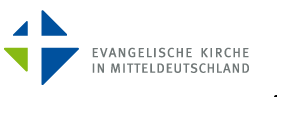Seminar on Human Dignity
Seminar on "HUMAN DIGNITY - Challenges for care and counselling in interreligious and intercultural contexts" in Wittenberg (September 2-7, 2017).

Seminar on Human Dignity
One of the ITN partner organizations, EKM, is co-organizer of a seminar on "HUMAN DIGNITY - Challenges for care and counselling in interreligious and intercultural contexts", which takes place in Wittenberg in September 2017. An excerpt from the program highlights the main issues of the seminar:
When Martin Luther 500 years ago in the small university town of Wittenberg fought against religious paternalism, dependency and exploitation, he put a reformatory movement in transition. He stood up for personal self-determination in a trusting relationship to God. In his theological reflection, the freedom of humans and of service to others belonged together. With this International Seminar in Wittenberg we would like to join the renewed impetus of the Reformation and ask what challenges we face in today's time for intercultural and interreligious care and counselling. There is growing evidence that the world's problems can no longer be isolated to specific regions. All states and societies are involved, no matter where the problems appear. The more closely we mankind is connected economically and technologically, the more connect are the issues and problems: climate change; digitization; social and demographic changes that lead to, among others, to refugee flows; unresolved political problems that cause violence, terror, unrest and wars - nobody can escape from all that in a globalized world. It is also evident that these problems can be addressed and contained only in a joint effort across borders. But this will only succeed if common values are being established for responsible political and ethical action across cultures, ideologies and religions,. After the enormous catastrophe of World War II the Charter of Human Rights of 1948 was proclaimed, hoping to give the international community and individual states mandatory values for more peaceful living together. As a central value the Charter refers to the "inherent dignity" of each human being. Is still the idea of human dignity a common value beyond the borders of states, cultures and religions? How can dignity be described and executed that it becomes concrete in current social, economic and political actions? Anyway human dignity belongs not only to the people who "we" are, but above all to the others, the strangers. Human dignity is characterized by dissolving borders and demands recognition and respect for every and each human being and emphasizes that each person has to be protected. Thus human dignity is shown in relationships – and gets the value in caring for others. Human dignity is also a challenge for pastoral care, especially for intercultural and interreligious pastoral care which always has to deal with the others and the stranger. Personal encounters of pastoral counselling are always processes of mutual recognition and appreciation – even if these people are completely different. No matter in what situation people are involved, no matter which pictures of themselves they have and what stories they tell, the process of recognition and appreciation remains fundamental. Pastoral relationship in difference is an example, how to live together and how to learn living together in variety and diversity. When pastoral care and counselling takes its task to respect the dignity of human beings and to promote dignity, it appeals into the public space of society. Pastoral care and counselling as "promotion of becoming humane" is always asking, from which anthropological, spiritual and religious sources human dignity is fed and how it communicates with the ethical convictions and one's own belief and faith.
Get the PDF
here, or follow this link to find the entire program and other information: www.sipcc.org/seminare.